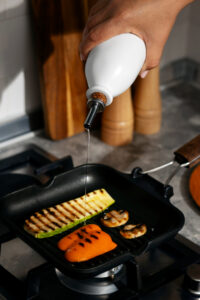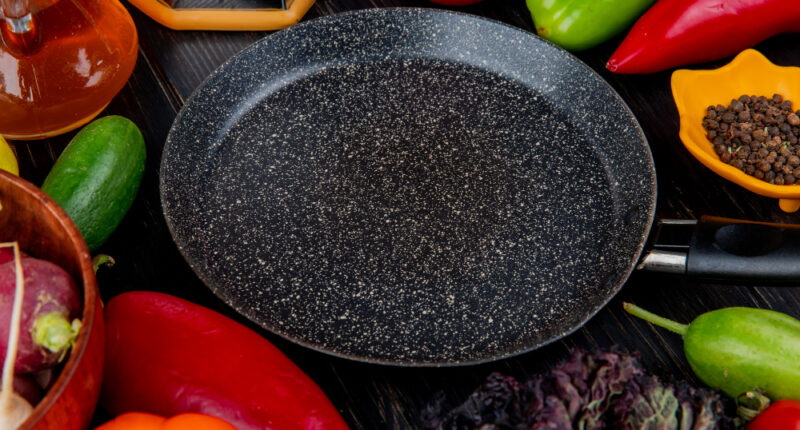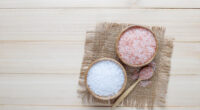Teflon, a brand name for polytetrafluoroethylene (PTFE), has been a popular non-stick coating for cookware since its introduction in the 1940s. Teflon is a kitchen staple known for its remarkable ability to repel food and simplify cleaning. However, concerns about its safety have emerged, prompting questions about the potential health risks associated with Teflon-coated cookware. In this blog, we will explore the safety of Teflon, its benefits, and the possible risks to help you make an informed decision about using Teflon-coated products.
What is Teflon?
Teflon is a synthetic fluoropolymer of tetrafluoroethylene, known for its non-stick properties. It is widely used in cookware, such as frying pans and baking sheets, to prevent food from sticking and to make cleaning easier. Teflon is also used in various industries, including automotive, electronics, and textiles, due to its durability and resistance to heat and chemicals.
The Benefits of Teflon Coating
Non-Stick Surface: Teflon’s primary advantage is its non-stick surface, which makes cooking and cleaning more convenient. Foods like eggs, pancakes, and delicate fish can be cooked without sticking to the pan.
Reduced Oil Usage: With Teflon-coated cookware, you can use less oil or butter, promoting healthier cooking by reducing fat intake.
Ease of Cleaning: Teflon-coated surfaces are easy to clean, often requiring just a quick wipe with a sponge, which saves time and effort in the kitchen.
Durability: Teflon is highly durable and can withstand high temperatures, making it suitable for various cooking methods.

Safety Concerns
Despite its benefits, Teflon has faced scrutiny regarding its safety, particularly when heated to high temperatures. The main concerns are related to the chemicals used in manufacturing and the potential release of toxic fumes when Teflon is overheated.
PFOA Controversy
One of the primary concerns associated with Teflon is perfluorooctanoic acid (PFOA), a chemical used to produce PTFE. PFOA has been linked to several health issues, including cancer, thyroid disease, and developmental problems. However, it is important to note that as of 2015, PFOA has been largely phased out in the manufacturing of Teflon-coated products due to health and environmental concerns.
Overheating Risks
When Teflon-coated cookware is overheated (above 500°F or 260°C), it can release toxic fumes that may cause polymer fume fever, also known as “Teflon flu.” Symptoms include headaches, chills, and fever. While these symptoms are generally temporary and resolve within a few days, the fumes can harm birds, leading to respiratory issues and even death.
How to Safely Use Teflon-Coated Cookware
To minimize potential risks and enjoy the benefits of Teflon-coated cookware, follow these safety tips:
Avoid High Heat: Do not preheat Teflon-coated pans on high heat. Use medium or low heat settings to prevent overheating.
Ventilation: Ensure your kitchen is well-ventilated while cooking to disperse any fumes that may be released.
Proper Utensils: Use wooden, silicone, or plastic utensils to avoid scratching the Teflon surface, which can lead to the release of particles.
Replace Damaged Cookware: If your Teflon-coated cookware is scratched or damaged, consider replacing it to avoid potential health risks.
Follow Manufacturer Instructions: Always adhere to the manufacturer’s guidelines for proper use and care of Teflon-coated products.
Alternatives to Teflon
If you are concerned about the potential risks associated with Teflon, there are several alternatives available:
Ceramic Coatings: Ceramic-coated cookware offers a non-stick surface without the use of PTFE or PFOA. It is a popular alternative for health-conscious consumers.
Stainless Steel: Stainless steel cookware is durable and has no non-stick surface, but it is a safe and long-lasting option.
Cast Iron: Properly seasoned cast iron provides a natural, non-stick surface free from synthetic chemicals.
Conclusion
Teflon-coated cookware offers many benefits, including convenience, ease of use, and healthier cooking with less oil. While safety concerns have been related to PFOA and overheating, adhering to safety guidelines can minimize potential risks. If you prefer to avoid Teflon altogether, several alternative cookware options are available. Ultimately, the choice depends on your personal preferences and cooking habits. By staying informed and following best practices, you can enjoy safe and healthy cooking in your kitchen.









